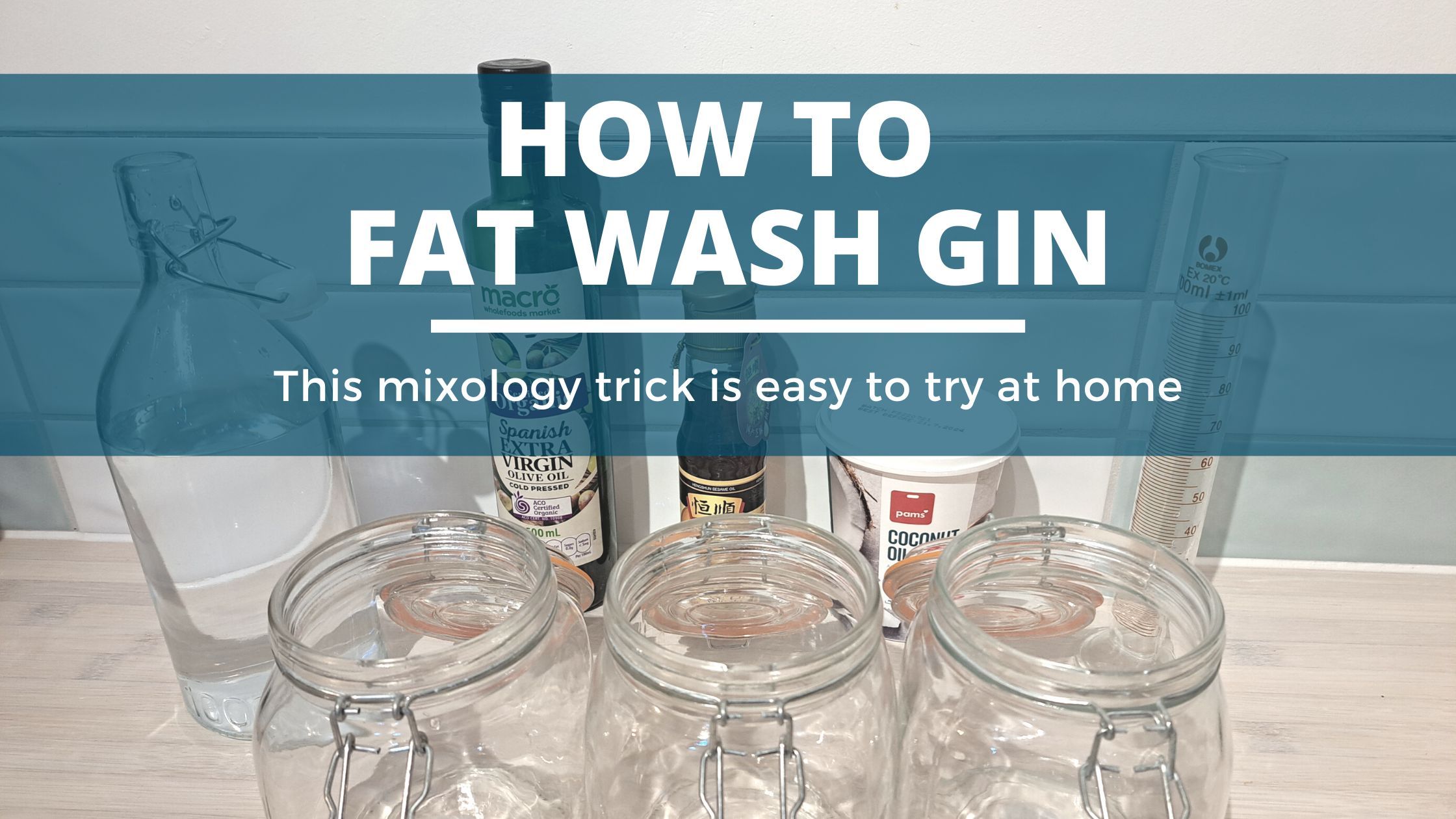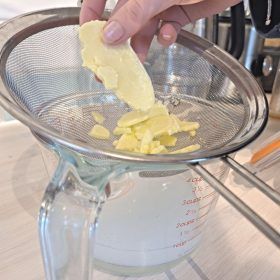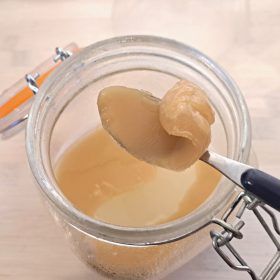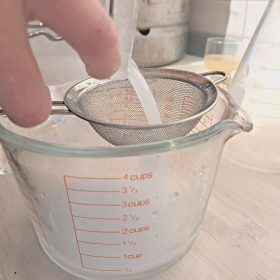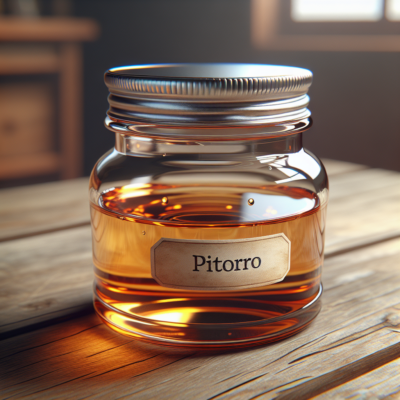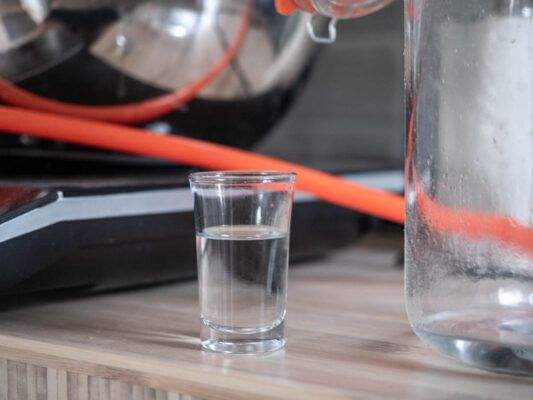Gin, Gin Recipes, Spirits
Fat Washed Gin (Try This Recipe!)
There are several creative ways to flavor your gin. From maceration and infusions to compound gin. But, if you harbor a desire for flavor beyond sweet and floral, then fat-washed gin might interest you.
Fat washing is the process of infusing a fatty substance like sesame or melted coconut oil into a spirit of your choice. You let the mixture freeze until the fat solidifies and then separate it from the alcohol.
Depending on the fat you’ve used, you can expect a meaty, nutty, or light coconut-flavored spirit.
This method not only enhances the flavor of a spirit but its texture as well. Most fat-washed spirits wind up with a smooth, oily mouthfeel.
If such a drink sounds like something up your alley, carry on reading this post. We’ve also included simple recipes for you to try so you can take your spirit to the next level.
Table of Contents
What Exactly Is Fat Washing?
Fat washing is the process of infusing the flavors of a fatty substance into a spirit. It’s an old perfume maker’s technique of infusing plants into odorless fat and then using a solvent like alcohol to extract the essential oils.
Mixologists utilize a similar method by melting fat, like coconut oil or butter, and pouring it into their desired spirit. From there, they allow the mixture to sit at room temperature so the alcohol can extract the fat’s flavors.
Then, they chill the spirit in a freezer and separate the fat from the alcohol through a fine strainer. The end product is a flavored spirit with an oily mouthfeel.
The reason why this method works so well is that alcohol is an excellent solvent. It has polar and nonpolar molecules that effectively dissolve water and extract fatty flavors.
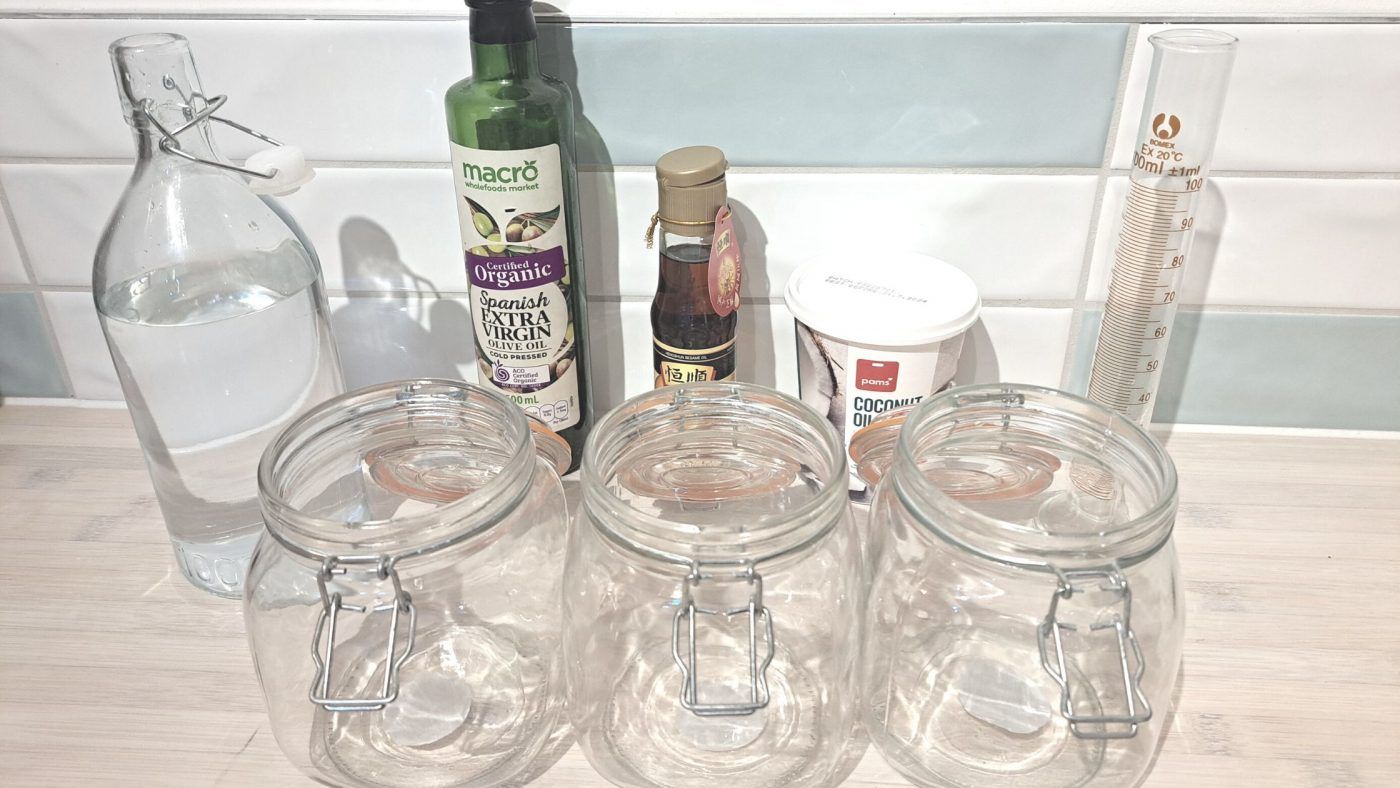
What Does Fat-Washed Gin Taste Like?
The taste of fat-washed gin depends on the fatty substance you decide to use.
For instance, if you choose to incorporate coconut oil, you’ll get a light-tasting spirit with a mild coconut aroma. Sesame seed has a more robust flavor, so you can expect a nutty-flavored gin. If you’re looking for something savory and decide to use bacon, you’ll get a meaty flavor.
With alcohol being a good solvent, it will extract the deep notes of the oils. When consuming a fat-washed spirit, you’ll also experience an oily mouthfeel – in a pleasant way.
If you use the proper gin-to-fat ratio, you should expect a silky smooth, oily mouthfeel.
What Types Of Fat Can You Use For Fat Washing?
There are various types of fat you can use for fat washing. Common choices include:
- Coconut oil
- Butter
- Olive oil
- Sesame oil
- Blue cheese
- Cheddar
- Peanut oil
- Rapeseed oil
NOTE: Even though most fats can be used for fat washing, it’s important to note that you should use a pleasant-tasting one.
Most fat-washed spirits are added to cocktails and the sweetener livens up the fat’s flavor. So, if you can’t imagine the taste of certain fats in your drink, don’t use them. Rather stick to commonly used ones.
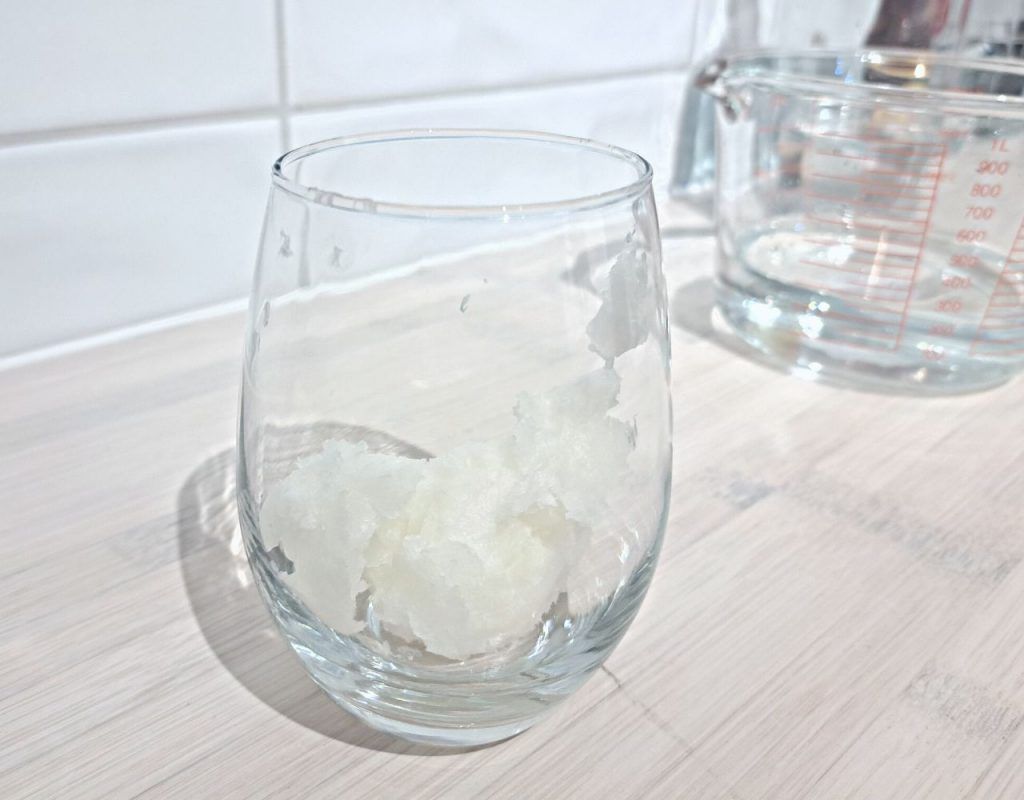
Popular Gin Fat Washing Combinations
Here are some popular gin fat-washing combinations.
- Blue cheese and gin
- Gin and olive oil
- Sesame oil and gin
- Coconut oil and gin
Fat Washing Ratios
The fat-to-gin ratio depends on the fat you’re using – some fats are generally more potent than others.
In his book, Liquid Intelligence: The Art and Science of the Perfect Cocktail, Dave Arnold recommends 120g (4oz) per 750ml of spirit for stronger fats like bacon, duck, and peanut butter. For milder fats like butter, coconut, and olive oil, he recommends 240g (8oz) per 750ml of gin.
But, what’s intensely flavored to one person might be bland and mellow to the next.
So, if it’s your first-time fat washing, we recommend you use a small amount of fat and adjust the ratio for every batch until you find a combination that works for you.
How To Fat Wash Gin (3 recipes)
Fat washing gin is a simple process that takes not more than 24 hours. When using solid fat, make sure it’s melted before you pour it into the spirit. We’ve quoted 4oz (120g) of fat for each recipe, but feel free to adjust as desired. Here’s how to fat-wash gin.
Equipment
- Pan (to melt solid fat)
- Coffee filter, fine-meshed strainer, or cheesecloth
- Resealable wide-mouthed glass container or nonreactive plastic container
- Glass bottles (for storage)
Recipe 1: How To Fat Wash Gin With Olive Oil
Ingredients
- 25oz (750ml) gin
- 4oz (120g) Olive oil
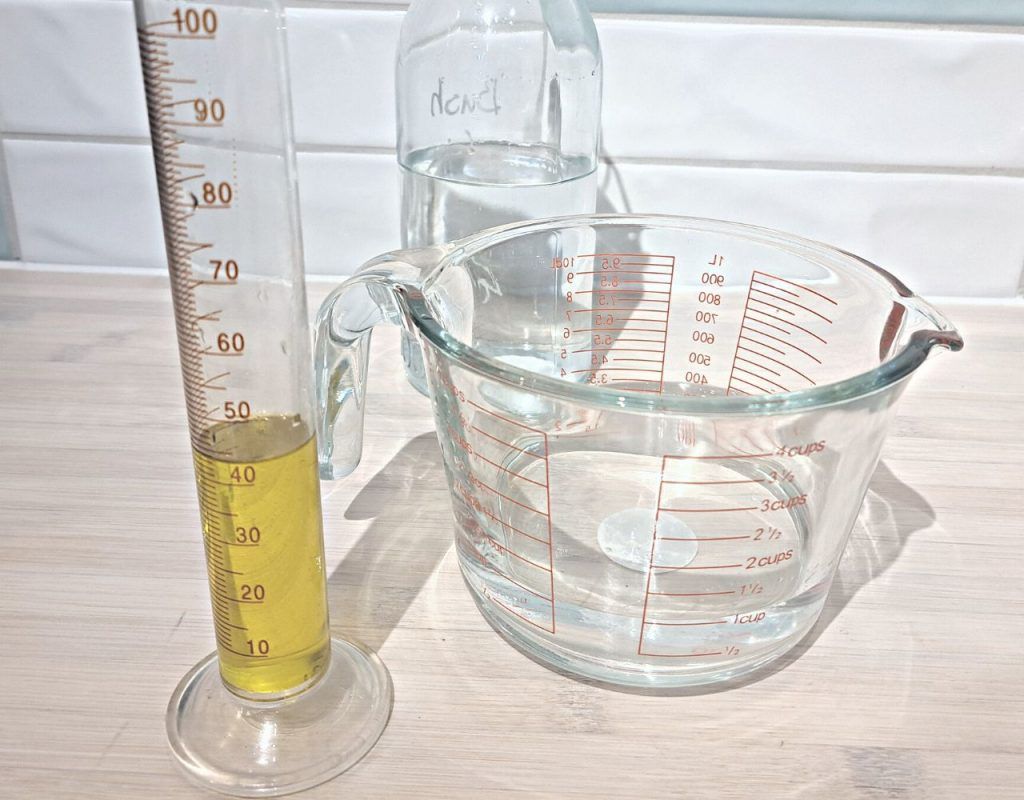
Method
- Pour the gin into the resealable jar.
- Pour the olive oil over the gin.
- Seal the container and shake vigorously.
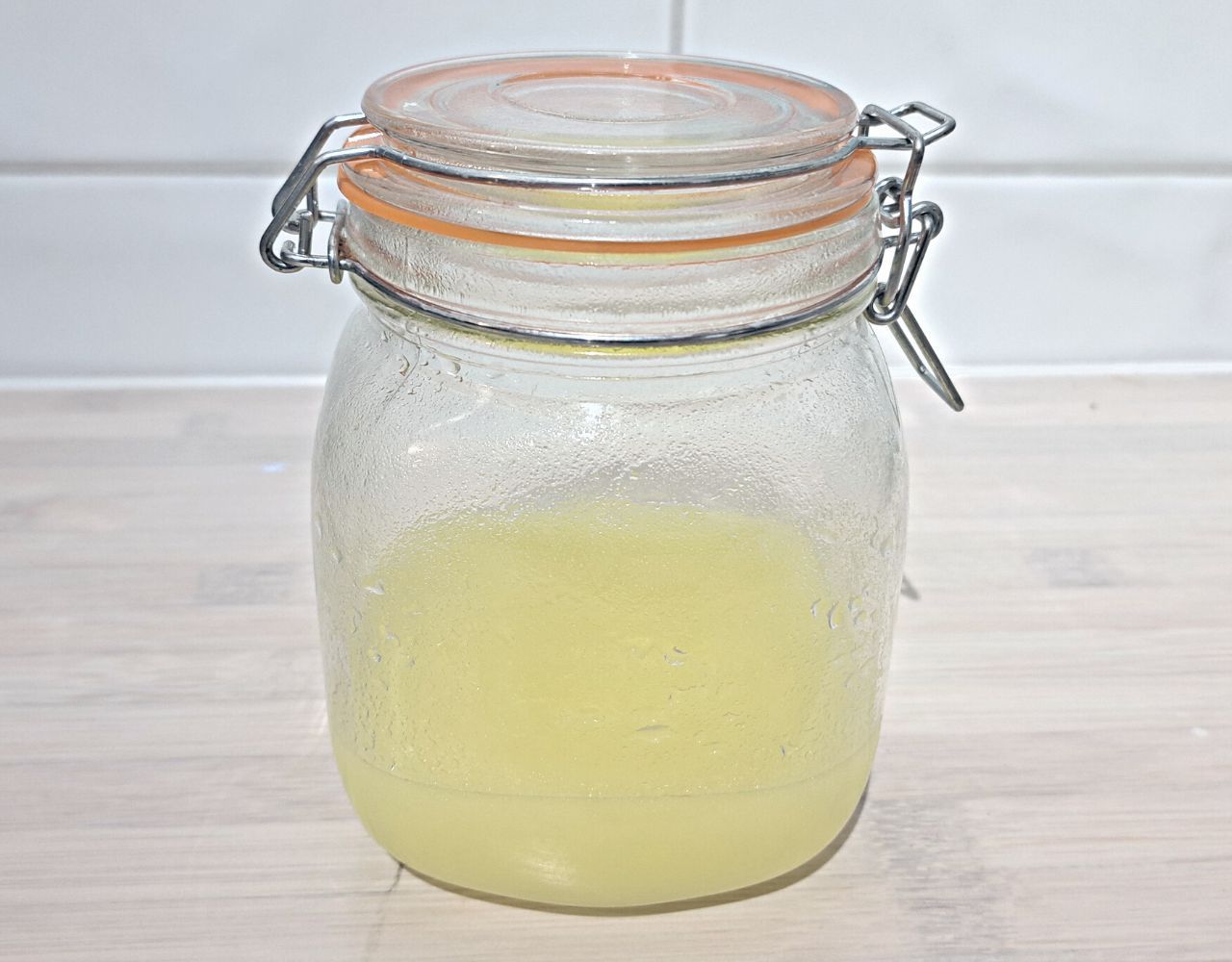
- Let the liquid sit at room temperature for at least 2 hours.
- Place the container in the freezer, and let it sit overnight.
- Remove the container, and then cut holes in the fat.
- Strain through the coffee filter into a clean glass bottle.
- Discard the oil.
How To Fat Wash Gin With Olive Oil
Equipment
- 1 Coffee Filter
- 1 Sieve
- 1 Measuring Jug
- 1 1L Glass Jar
Ingredients
- 25 oz (750ml) gin
- 4 oz (120g) Olive oil
Instructions
- Pour the gin into the resealable jar.
- Pour the olive oil over the gin.
- Seal the container and shake vigorously.
- Let the liquid sit at room temperature for at least 2 hours.
- Place the container in the freezer, and let it sit overnight.
- Remove the container, and then cut holes in the fat.
- Strain through the coffee filter into a clean glass bottle.
- Discard the oil.
Notes
Recipe 2: How To Fat Wash Gin with Sesame Oil
Ingredients
- 25oz (750ml) gin
- 4oz (120g) Sesame oil
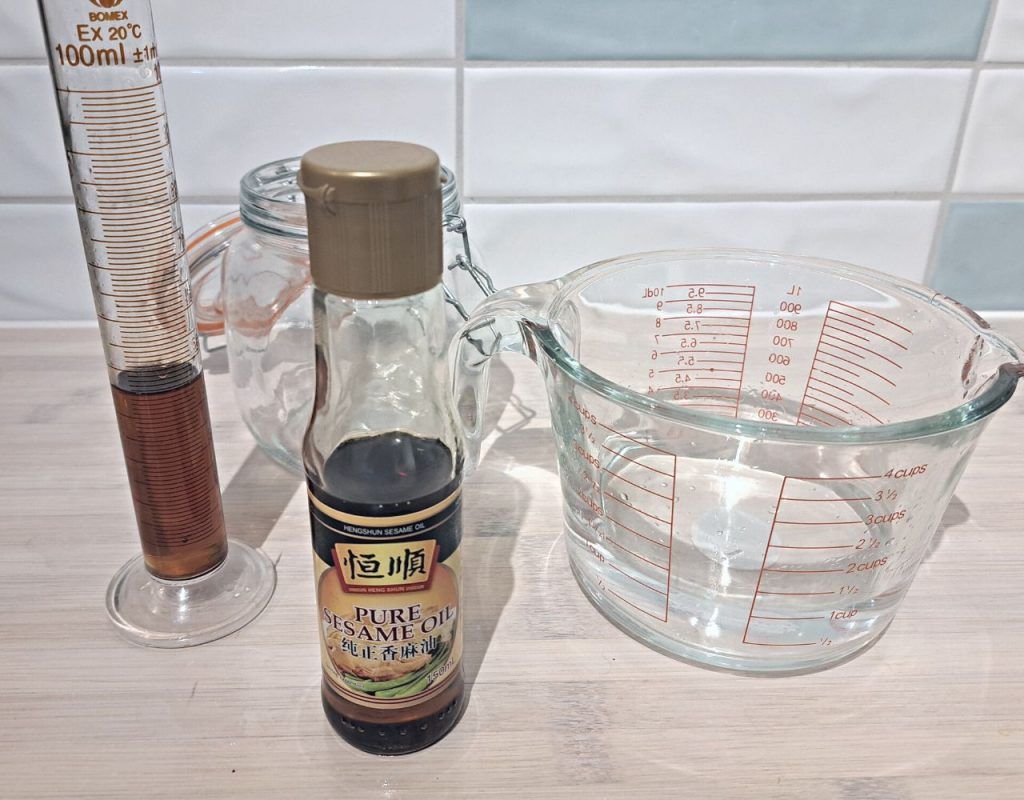
Method
- Pour the gin into the resealable jar.
- Pour the sesame oil over the gin.
- Seal the container and shake it well.
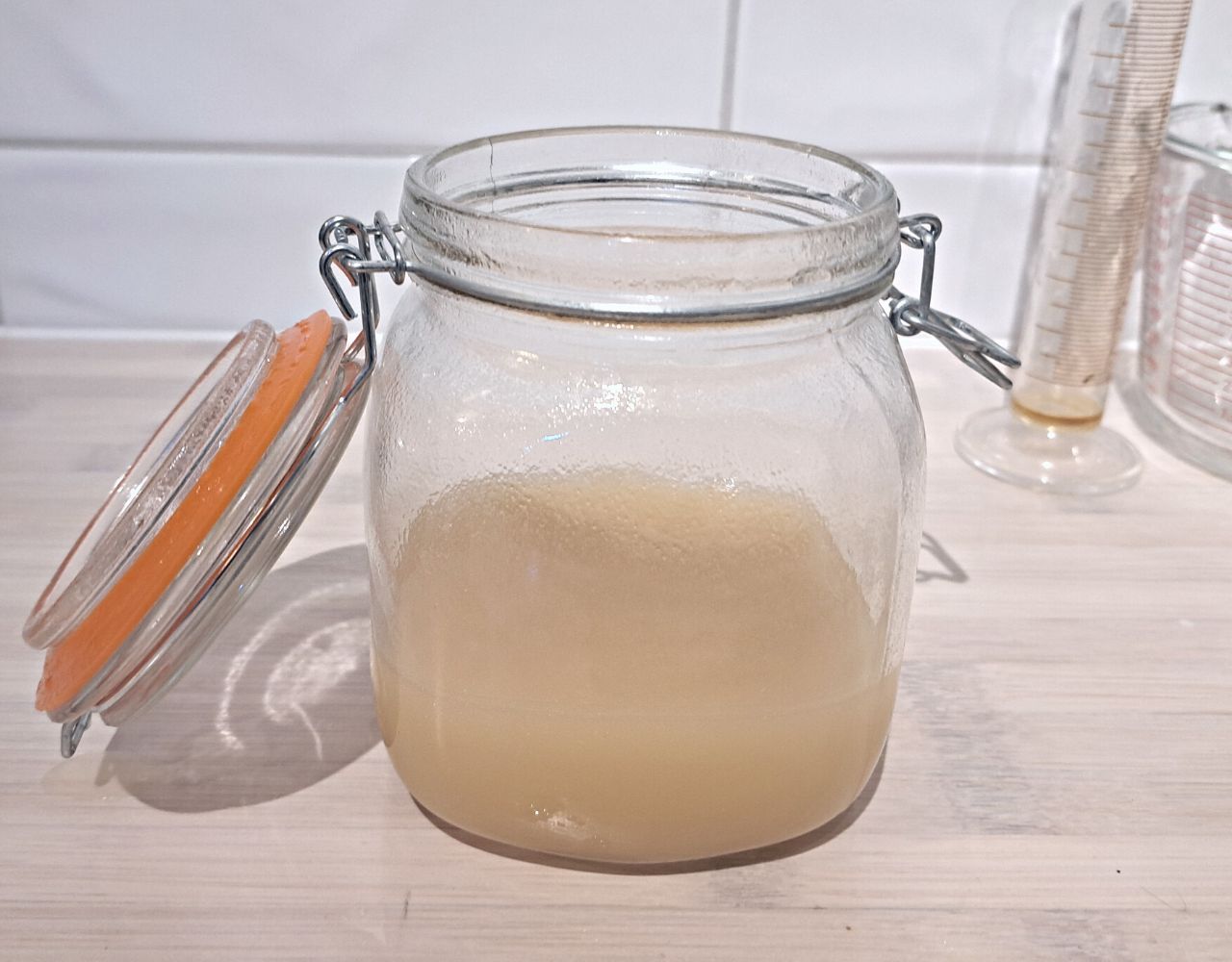
- Let the liquid sit at room temperature for at least 2 hours.
- Place the container in the freezer, and let it sit overnight.
- Remove the container then cut holes in the fat.
- Pour the gin into a clean glass bottle lined with a coffee filter.
How To Fat Wash Gin with Sesame Oil
Equipment
- 1 Coffee Filter
- 1 Measuring Jug
- 1 Glass jar
- 1 Sieve
Ingredients
- 25 oz 750ml gin
- 4 oz 120g Sesame oil
Instructions
- Pour the gin into the resealable jar.
- Pour the sesame oil over the gin.
- Seal the container and shake it well.
- Let the liquid sit at room temperature for at least 2 hours.
- Place the container in the freezer, and let it sit overnight.
- Remove the container then cut holes in the fat.
- Pour the gin into a clean glass bottle lined with a coffee filter.
Notes
Recipe 3: How To Fat Wash Gin With Coconut Oil
Ingredients
- 25oz (750ml) gin
- 4oz (120g) Coconut oil

Method
- Melt the coconut oil.
- Pour the gin into the resealable jar, and then pour the oil over it..
- Seal the container, then it shake well.
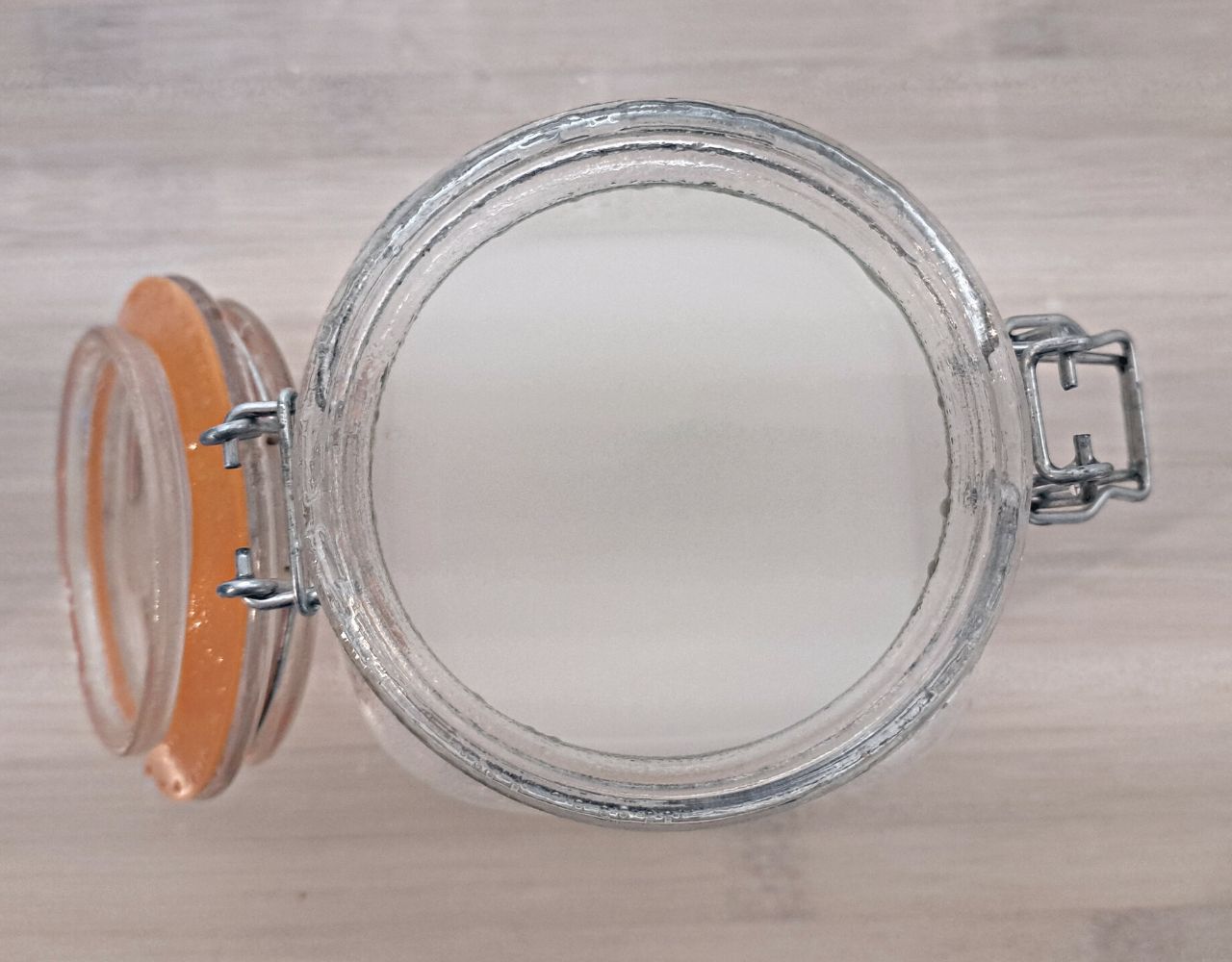
- Let the liquid sit at room temperature for at least 2 hours.
- Place the container in the freezer, and let it sit overnight.
- Remove the container and then cut holes in the fat.
- Strain through the coffee filter into a clean glass bottle.
NOTE: When fat washing with coconut oil, use virgin or unrefined coconut oil. The refined version has most flavors stripped off, so it won’t impart flavor in your final drink.
Fat Wash Gin With Coconut Oil
Equipment
- 1 Measuring Jug
- 1 Sieve
- 1 Coffee Filter
- 1 Glass jar
Ingredients
- 25 oz 750ml gin
- 4 oz 120g Coconut oil
Instructions
- Melt the coconut oil.
- Pour the gin into the resealable jar, and then pour the oil over it..
- Seal the container, then it shake well.
- Let the liquid sit at room temperature for at least 2 hours.
- Place the container in the freezer, and let it sit overnight.
- Remove the container and then cut holes in the fat.
- Strain through the coffee filter into a clean glass bottle.
Notes
Conclusion
Fat washing your spirit might be a better option if the same old gin and tonic concoction has gotten rather boring for you. You’re not limited to one flavor because you can play around with coconut, sesame, or olive oil.
It’s not only an exciting way to flavor your spirit, but it also adds a dimension of texture to it. So, go ahead and try one of the recipes in this post. And, if you’re feeling adventurous, why not explore the blue cheese variation as well?

